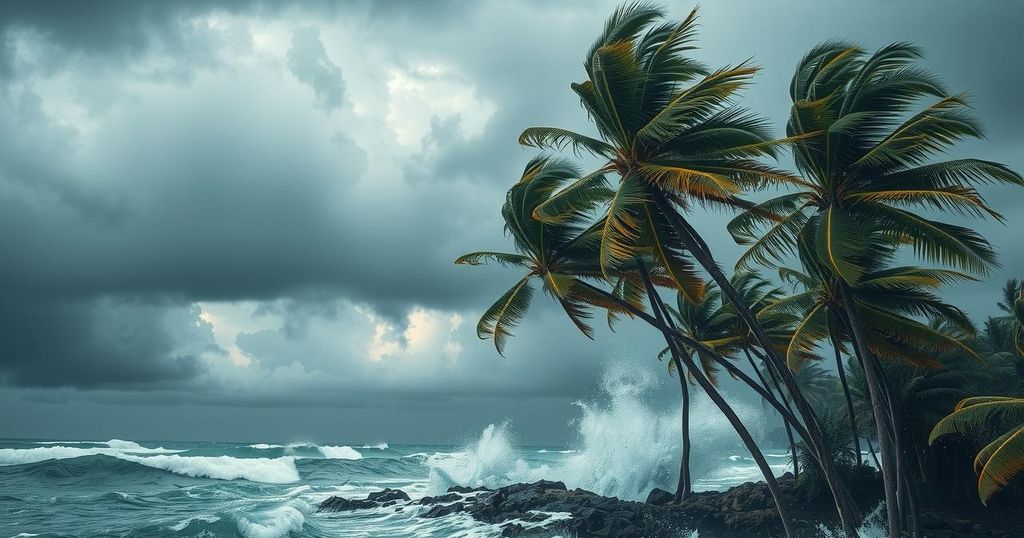Madagascar: Tropical Cyclone Dikeledi – Flash Update No. 3 (15 January 2025)

Tropical Cyclone Dikeledi has affected over 7,000 people in Madagascar, damaging houses and disrupting education. Displacement sites have been vacated as individuals return home. The southwest coast is bracing for severe weather, and ongoing humanitarian support is being provided. Efforts focus on food distribution, health services, and resuming education.
Tropical Cyclone Dikeledi has impacted over 7,000 individuals in Madagascar, damaging more than 1,000 houses, with 203 completely destroyed. Throughout the northern regions, displacement sites have been vacated as people returned to their homes as of January 15. Schools resumed on January 13 in certain areas, although over 8,000 children experience disruptions due to 250 damaged classrooms.
Heavy rains and strong winds are forecasted for Madagascar’s southwest coast, particularly Toliara Province, between January 15 and 16, as Cyclone Dikeledi intensifies. The government and humanitarian organizations are actively providing life-saving assistance while monitoring the cyclone’s trajectory. As of January 15, the cyclone was located about 200 kilometers off Toliara’s coast, and travel advisories have been issued due to expected severe weather.
The extreme north of Madagascar reported 7,028 individuals affected, with regions like Diana and Sava being the most severely impacted. Tragically, three fatalities were reported. Flooded conditions affected 1,185 structures, with 1,092 damaged and 209 fully destroyed. Damage to educational facilities has hindered learning for approximately 8,000 students.
While Dikeledi strengthens into a significant tropical cyclone, forecasts predict its movement will shift south-southeast and subsequently dissipate by the end of the week, posing no further threat to land. The government is ramping up humanitarian efforts using pre-positioned supplies and has deployed aid across various sectors, including food, water sanitation, education, and child protection.
Restoration efforts involving community engagement and distribution of essential resources are underway, including providing food to families and health support in accommodation sites. Additionally, temporary school setups are in progress, with the Ministry of Health overseeing disease surveillance. The port of Toliara has been temporarily closed due to cyclone warnings, highlighting the seriousness of the situation.
Madagascar frequently faces the threats of tropical cyclones, which can lead to significant humanitarian crises. The passage of Tropical Cyclone Dikeledi on January 11, 2025, highlights the vulnerability of the country to natural disasters. The swift emergency response and coordination among government bodies and humanitarian organizations play an essential role in managing crises caused by such severe weather phenomena. Effective disaster management is crucial for ensuring the safety and well-being of affected populations, particularly in regions with existing instability from previous storms.
Tropical Cyclone Dikeledi has significantly impacted Madagascar, affecting thousands of individuals, damaging homes, and disrupting education. As emergency response efforts continue, the government and humanitarian partners are committed to providing necessary support. The cyclone’s movement suggests a gradual weakening, though the consequences for the population remain severe. Ongoing communication and proactive measures are vital to ensure safety and address the needs of those affected.
Original Source: reliefweb.int






